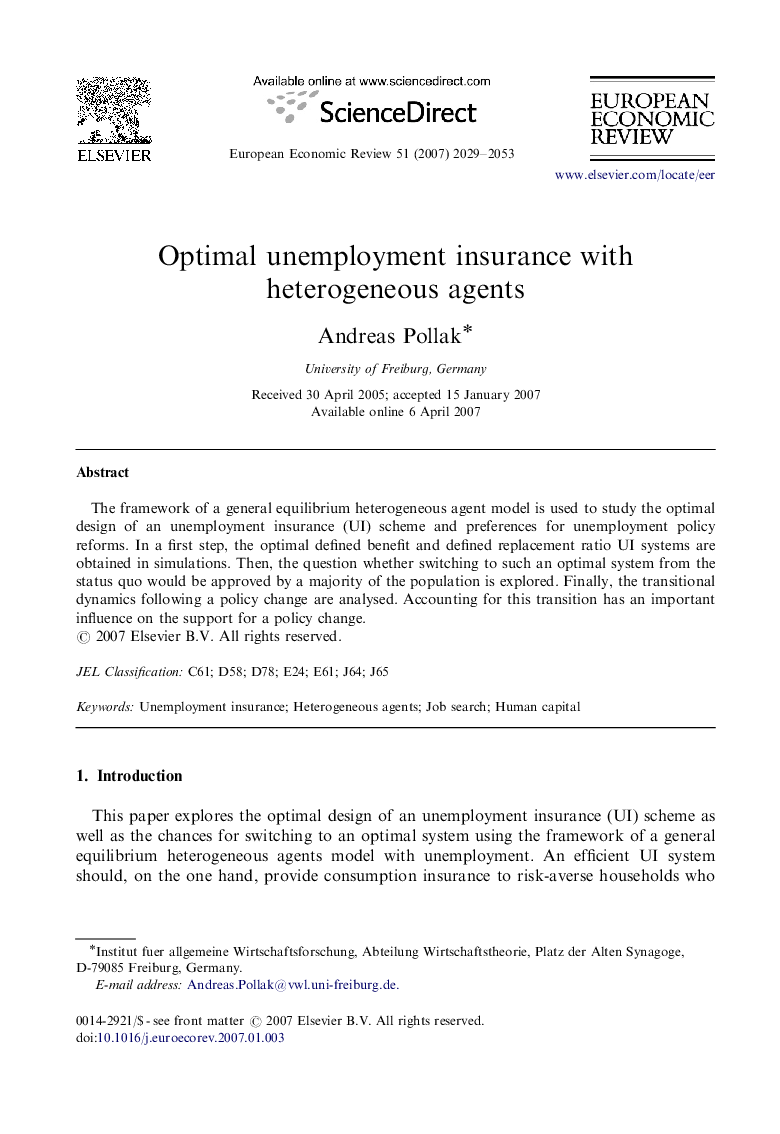| Article ID | Journal | Published Year | Pages | File Type |
|---|---|---|---|---|
| 5067397 | European Economic Review | 2007 | 25 Pages |
Abstract
The framework of a general equilibrium heterogeneous agent model is used to study the optimal design of an unemployment insurance (UI) scheme and preferences for unemployment policy reforms. In a first step, the optimal defined benefit and defined replacement ratio UI systems are obtained in simulations. Then, the question whether switching to such an optimal system from the status quo would be approved by a majority of the population is explored. Finally, the transitional dynamics following a policy change are analysed. Accounting for this transition has an important influence on the support for a policy change.
Related Topics
Social Sciences and Humanities
Economics, Econometrics and Finance
Economics and Econometrics
Authors
Andreas Pollak,
